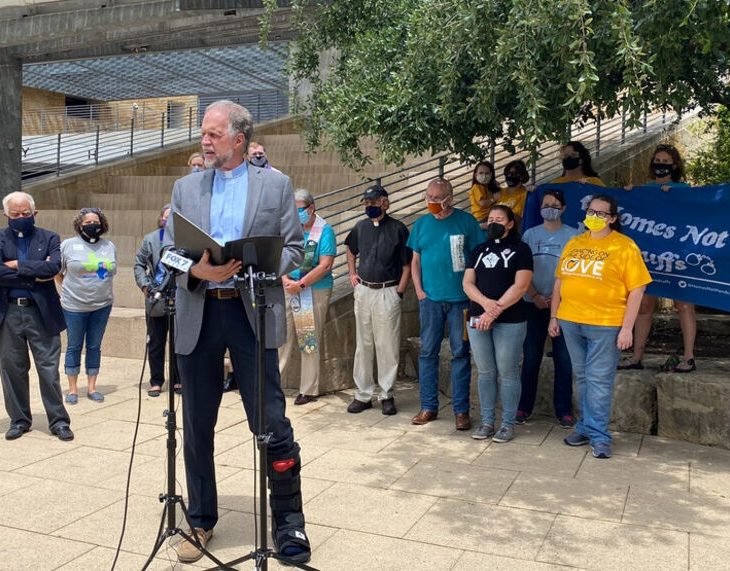Safety in Our City
May 24, 2021

Safety is a heated word right now. In the time of the pandemic, safety often means the difference between health and sickness and, potentially, life and death. In Austin, Texas, where I call home and am a Presbyterian Church (USA) seminary student, safety has been at the center of a local election proposition based on “keeping our city safe.” Safety, in this case, is not about a virus, but instead is about deciding who is safe to our community—ultimately saying that some people aren’t part of the community.
This creation of a perceived sense of safety for some while pushing out others surrounds Proposition B, begun by a PAC called Save Austin Now. Proposition B, with the goal of reinstating the camping ban for those experiencing homelessness in the downtown and University of Texas areas of Austin, has now passed with a ratio of 57.13% voting for the proposition and 42.87% voting against (Travis County, City of Austin, Communications and Public Information Office). Ultimately, this proposition pushes homeless individuals out while not including any suggestions or solutions for how to support these individuals: there is no mention of opening new camps or addressing the root causes of homelessness in Austin, such as addiction and mental health.
This is an issue that Save Austin Now has deemed vital for the safety of our community. This PAC claims that in reinstating the camping ban, the public in Austin can be free to go wherever they want without worrying about “being accosted or feeling unsafe” (Save Austin Now). On paper this makes sense, but in actuality there is no data that those experiencing homelessness are those creating significant safety issues in the city. Additionally, when looking at the precincts that voted for this proposition, those who live in the areas affected by this proposition—downtown and the University of Texas—largely voted against the camping ban, meaning that those who actually live around our neighbors experiencing homelessness largely do not have an issue with them being there.
This initiative, aimed at “protecting” people, instead criminalizes the simple act of trying to survive. I wonder what this initiative means by “our community.” It certainly does not count our neighbors experiencing homelessness as a part of that community. Instead, it erases our neighbors, pushing them even further into the margins so that those of privilege can pretend they do not exist. This is an “easy” solution: push people to the outskirts so as to not address the systemic issues behind why they are there. This is the exact opposite of my call as a Christian. In my sacred text, I see Jesus welcoming all to the table, especially those who have been pushed away by society. I see Jesus reminding me to loudly call out the injustices of the status quo, calling me to address the uncomfortable, the messy, the parts of society that often get pushed under the rug. Pushing people to the margins is the opposite of what Jesus calls me to do.
Now, with this initiative in effect, I wonder how I can more loudly claim the complexity and diversity of the community I live in, especially those whom society and law have tangibly pushed to the margins. My faith calls me to claim, not criminalize, all those around me as a sacred community.
Julia Burkley is going into her third year at Austin Presbyterian Theological Seminary as she seeks ordination in the Presbyterian Church (USA). She also leads UKirk Campus Minsitry at University Presbyterian Church in Austin and facilitates conversations about justice, interfaith, and the Bible.
Share



